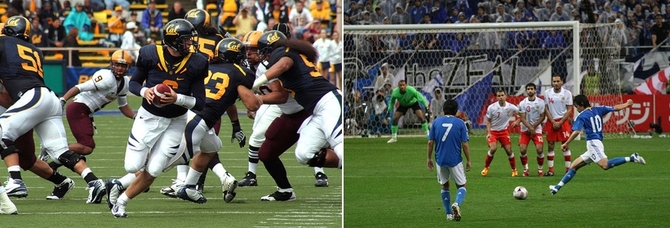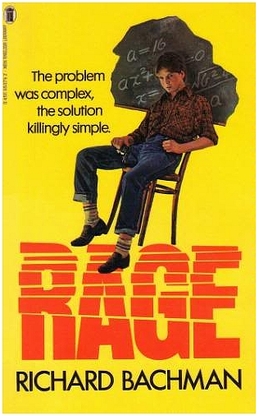
Soccer indeed can stir up very strong emotions. Wars have been started or temporarily suspended as a result of soccer matches. People have died or been injured as a result of clashes between soccer fans, and some people have been known to commit suicide when their team did not win the World Cup. Players have been marginalized for the rest of their lives, retired, or even killed for failing to win a game or for committing a crucial mistake that led to the loss of a game. Referees have had to go into hiding for making a call considered unfair.
The lives of entire groups of people around the globe revolve around the performance of their favorite teams, and the productivity of entire regions in certain countries goes up or down depending on whether the local soccer team wins. Certain teams and specific players have become legends. Their names and their feats are enshrined in museums and celebrated in word and song. Certain infamous games or goals or other events during the game where a team was "cheated" of a win, linger in the collective consciousness of countries decades after the fact. Some are even still discussed and analyzed nowadays with computer technology applied to ancient archival footage.
When the national teams play in a World Cup all the activity in certain countries comes to a halt. The streets become deserted. No one works, including the police, which is not a problem because all the criminals are also watching the game. If the team wins there is a huge celebration with people stopping traffic and dancing in the streets. If the team loses the whole country goes into a long period of mourning as though a national catastrophe had occurred.
So many people ask themselves: What is it with Americans? Why haven't they caught the soccer bug like everyone else? Why do they prefer this sport the rest of the world calls "American Football" over soccer? This question is even more relevant if you consider that soccer is the most popular (even more than football) youth participation sport in the United States up to the age of 13.
I have investigated a little and have found that several explanations have been proposed ranging from the plausible to the whimsical. Let's take a look.
1) Not enough scoring
Americans say that watching soccer is like having fun watching the grass grow. They claim that there is not enough scoring for the amount of time that one spends watching the actual game.
The average number of total goals per game in world cup soccer from 1990 onward is about 2 to 3, whereas the average number of touchdowns per NFL football game has seen an uptick in recent years and was 4.92 in 2011. So there are more touchdowns per game in football than goals in soccer. But of course football is not a game of touchdowns; football is a game of points. Each touchdown is 6 points but you also have the option of kicking a field goal for 3 points (of course after a touchdown a team can go for the extra point kick or the 2 point conversion, but this is only after a touchdown). So in this aspect football does have an additional scoring mechanism besides touchdowns that makes it difficult for a game to end up scoreless. The last scoreless game in NFL history was back in 1943, whereas scoreless games in soccer are quite common. To this consideration you also have to add game times. In professional soccer you have 2 halves of 45 minutes for a total of 90 minutes of game time whereas professional football has 4 quarters of 15 minutes each for a total of 60 minutes of game time.
So if scoring is important for Americans, football does come out ahead.
2) Not enough timeouts
Americans like their timeouts and have no patience for a constant action game like soccer.
In football the clock does stop after certain plays and if the game is broadcast on television TV timeouts are taken. All this can extend the actual length of a football game (from start to finish) to more than 3 hours. By comparison in soccer there is only a 15 minute rest period between halves making the actual start to finish length of a soccer game 105 minutes.
So if Americans like timeouts then football is more suited for them.
3) Lack of physicality, the game is not violent or "manly" enough.
Americans tend to like physical sports and they argue soccer is not physical enough. At high school or college level a common derogatory comment about soccer is that "it is a sport for girls". The fact that the U.S. woman's soccer team has won the Woman's World cup 2 times with 1 second and 3 third places finished, while the men's team has only achieved a third place finish back in 1930 of course does not help.
Football is arguably a more physical sport than soccer. Despite all the protective gear, many football players suffer serious injuries regularly and many players experience injuries that still pain them many years after they have retired and that require multiple surgeries. The average NFL player's career lasts about 3.8 years whereas soccer players can play well into their thirties with careers lasting 10 years or more. There is also the fact that many soccer players feign an injury to hoax the referee into calling a penalty or have the other player expelled. This is considered by many Americans to be dishonest sissy-like behavior not becoming of a man.
So if indeed physical manly confrontation is what Americans want then this is a reason to prefer Football.
4) Football is "Institutionalized"
It is argued that, as opposed to soccer, the nature of football with its timeouts fits just right into American corporate and consumer culture. It is also argued that the popularity of football at the college level has turned it into huge money-making enterprise. The above create an insurmountable barrier for soccer to become popular in the United States.
These seem also valid reasons for the difficulty that soccer has encountered in becoming more mainstream in the United States.
5) There are too many sports in the U.S.
Another argument is that the sport's market in the United States is saturated. Football reigns supreme, but basketball, baseball, ice hockey, golf, etc. mop up the rest of soccer's potential fans. So soccer does not compete only against football for fans but against all those other sports.
This is another plausible reason too why soccer has had trouble gaining traction in the United States.
6) You can't use your hands.
It has been argued that there is something about being able to use your hands that runs deep within the "can do" American psyche or its "pioneer spirit". That is why sports invented in the U.S. such as football, baseball and basketball all involve using your hands. Because of this a sport like soccer is anathema to Americans.
I don't know if this is true but there may be something to it.
7) Americans are not good at soccer and don't like it because they can't dance.
There is the perception by many that, despite some exceptions, the average American guy cannot dance very well and feels uncomfortable about even trying it. Thus, because soccer requires the major footwork and leg to hip coordination that comes naturally from dancing, American guys are not good at it and can't relate to it.
I am not sure that in general being a better dancer makes you a better soccer player or a more enthusiastic soccer fan. With regards to the "better player" part of this claim, you would have to argue that how good of a dancer the average guy is, somehow relates to the number of World Cups their country has won. The way it stands now it is (World Cups per country):
Brazil 5
Italy 4
Germany 3
Argentina & Uruguay 2
England 1
France 1
Spain 1
So there you have it, are the Brazilian and Italian guys better dancers than the English, the French, and the Spanish (with the German, Argentinean and Uruguayans in between)?
8) No cheerleaders.
It has been argued that Americans (here I guess this means guys) prefer football to soccer because of the cheerleaders (soccer in the U.S. doesn't have cheerleaders). After all, what good is a sport without a little porn?
No comment.
These are some of the reasons that have been put forward to explain why Americans have not caught the soccer bug. Please feel free to leave a comment and let me know what you think about them and suggest any other explanations that you may have.
***
If you like this blog you can have links to new blog posts delivered to your e-mail address. Please click here.





 RSS Feed
RSS Feed



